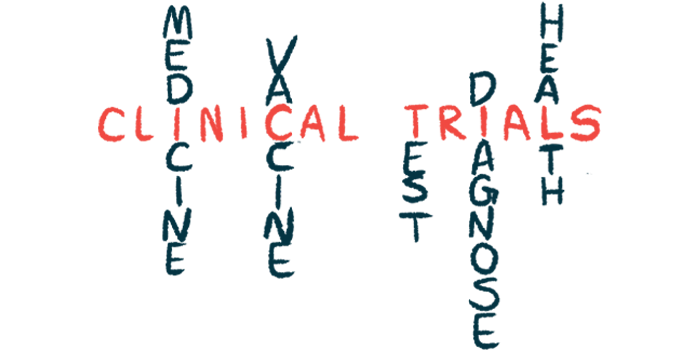Long-term Anavex 2-73 reduced dementia, motor symptoms
Extension study of a Phase 2 trial shows investigational therapy is effective

One year of treatment with Anavex 2-73 (blarcamesine) safely led to a reduction in symptom severity for 20 people with Parkinson’s disease dementia in an extension study of the Phase 2 ANAVEX 2-73-PDD-001 trial.
This finding was in sharp contrast with the worsening of symptoms observed in the months that separated the end of the Phase 2 trial and the start of the extension study, during which participants were not taking Anavex 2-73.
“This data suggests Anavex 2-73’s potential capability to slow and potentially reverse the life altering symptoms of Parkinson’s disease, an urgent unmet global need,” Christopher Missling, PhD, the president and CEO of Anavex Life Sciences, the therapy’s developer, said in a press release announcing the preliminary results.
The company is planning to launch a pivotal clinical trial to further assess the efficacy of Anavex 2-73 in Parkinson’s patients. If positive, the data will be used to support the filing of regulatory applications seeking the therapy’s approval.
Anavex 2-73 is an orally available small molecule that works by activating SIGMAR1, a receptor protein that regulates several aspects of cell biology relevant to neurodegeneration, thereby helping to maintain healthy brain cells.
Since SIGMAR1 is found at lower-than-normal levels in the brains of people with Parkinson’s and other neurological disorders such as Alzheimer’s disease and Rett syndrome, Anavex is developing Anavex 2-73 as a potential treatment for all three conditions.
The proof-of-concept Phase 2 ANAVEX 2-73-PDD-001 trial (NCT03774459) tested Anavex 2-73 against a placebo in 132 adults with Parkinson’s disease dementia. The study lasted about 3.5 months, and results suggested that patients given the experimental therapy once a day showed improvements in memory and other cognitive skills.
Findings also indicated that Anavex 2-73 led to clinically meaningful reductions in the severity and daily impact of motor and nonmotor symptoms, as assessed with the Movement Disorder Society-Unified Parkinson’s Disease Rating Scale (MDS-UPDRS).
Extension study
After completing the trial, participants had the option to enroll in an open-label extension study, called ANAVEX 2-73-PDD-EP-001 (NCT04575259), in which all were treated once daily with Anavex 2-73, in addition to their other Parkinson’s meds, for 48 weeks (almost a year).
Due to the COVID-19 pandemic, the start of the extension study was delayed, and many patients elected not to enroll in the extension study. For those who did enter the study, there was a gap of more than nine months on average between the end of the original Phase 2 trial and the beginning of the extension study.
Over the course of this gap in Anavex 2-73 treatment — a so-called drug holiday — total scores on the MDS-UPDRS tended to worsen, as well as those in the scale’s part 2 plus 3. These assess the severity of motor symptoms and the extent to which these affect the ability to perform daily activities.
However, average MDS-UPDRS scores tended to improve during the extension study. Among the 20 patients who completed the extension trial, the median total MDS-UPDRS score at 48 weeks was similar to that reported at end of the original Phase 2 study, before they had worsened during the drug holiday.
Similar trends were observed in the other efficacy outcomes, indicating better overall health, slower cognitive decline, and less-severe REM sleep behavior disorder (RBD) during the extension study. RBD is a condition associated with greater cognitive impairment and a higher dementia risk.
“It is encouraging that the patients’ clinical symptoms consistently improved longitudinally over time during the extension phase under active Anavex 2-73 treatment,” Missling said.
The experimental therapy also was found to be generally safe and well tolerated over long-term, with a safety profile consistent with that reported in previous trials.
Phase 3 trial goals
In the upcoming Phase 3 trial, the main goal will be to evaluate whether six months of Anavex 2-73 treatment can improve scores significantly on MDS-UPDRS-parts 2 plus 3. The secondary goal also will include a clinician-rated measure of overall health that was used in the Phase 2 extension trial: the Clinical Global Impression – Improvement.
At the request of the extension study participants, patients who completed the trial can continue treatment with Anavex 2-73 through a compassionate use special access scheme. Participants in this program now have been on treatment for more than two years.







